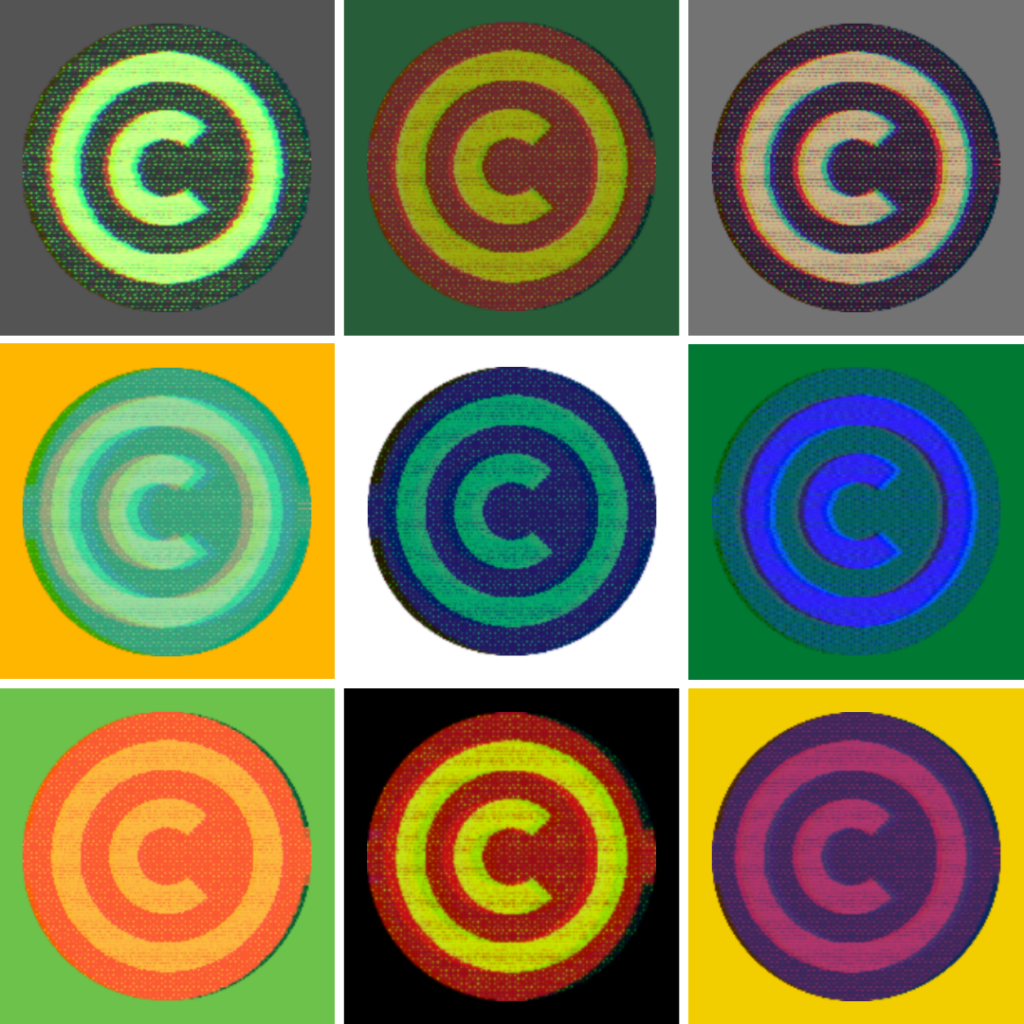This post was written by Copyright Office Director, Adrian Sheppard, and Copyright and Scholarly Communications Librarian, Amanda Wakaruk

What is copyright?
Copyright is a set of legal rights established by the federal government and the courts through legislation and case law. Penalties for copyright infringement can be significant, so it is important to have some familiarity with how copyright might apply to you.
What does copyright apply to?
Copyright is governed by the Copyright Act and it applies to “works”, including literary, artistic, dramatic and musical works (e.g., books, images, plays, recorded songs, etc.). Copyright provides a limited right to the creator (or other rightsholder) of a protected work to control how that work is reproduced, distributed and used.
Who owns copyright in the works you make?
Normally, you will own the copyright in the original works that you create. However, this can get complicated if your work includes the substantial parts of works created by others, or if it is based on work created by another (e.g., translations or adaptations). It is important to note that copyright in works that are created in the course of employment is normally owned by the employer, unless your employment agreement specifically indicates otherwise. If you are creating works in the course of your employment, you should check the terms of your employment agreement.
How can you make use of the works others have made?
Different works will have different terms of use, largely based on how you access the work. For example, the work may be a book on the shelf, an image on the open web, an online resource accessed via the library website, or course materials on eClass. Each of these may have different terms of use, which provide some indication of the rightsholders’ wishes for how the work is to be used. Creative Commons licences are becoming an increasingly popular way for rightsholders to communicate to users the scope and limits of the permitted uses of their works.
Separately, copyright law supports some uses by those other than the rightsholder. Copyright law was developed to balance the rights of creators and users in order to serve the broader public interest. It not only protects the rights of the creators to control – to some extent – how their works are used, but it also recognizes the public benefit from the use of protected works and it encourages that use.
Protecting your rights as a user of works
User rights form an important component of the copyright balance. While there are some very specific exceptions in the Copyright Act to promote use of works in certain contexts, there are a couple of important features associated with user rights that involve interpretation. One is “substantiality” and the other is “fair dealing.”
Copyright protection only applies to “substantial parts” of protected works, therefore a user is free to use any insubstantial part of such work. Also, there is an exception to copyright infringement where, if the use of a protected work is a fair dealing, it does not infringe copyright. For example, a short quote from a much longer work might be insubstantial, where a more extended excerpt from that same work might be a fair dealing, depending on how it is to be used and distributed. Making determinations about whether part of a work is substantial or whether a specific use of a work is a fair dealing are matters of interpretation. Although acting on such interpretations can involve risk, if overly conservative interpretations become the norm, this could result in an erosion of these user rights.
Where can I get more information?
Check out the Copyright Office website. For a deeper dive, check out the Opening Up Copyright Instructional Modules. For specific questions relating to copyright, contact the Copyright Office staff.
